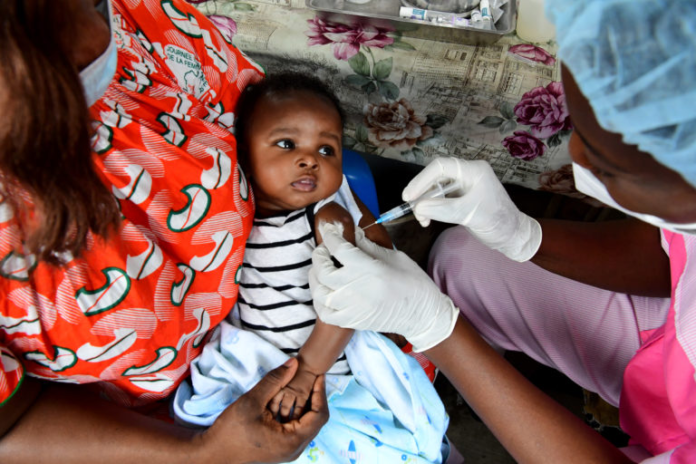Ghana is grappling with an alarming increase in the number of children not receiving age-appropriate vaccinations, as revealed by recent data released by the Statistical Service.
The statistics, shared ahead of World Immunization Week, underscore the urgency of addressing gaps in the country’s immunization coverage.
According to the Statistical Service, there has been a concerning rise in the percentage of children aged 24 to 35 months who have not been fully vaccinated according to the national schedule.
The data shows a 15.1 percentage point increase in unvaccinated children between 2014 and 2022, with nearly three in every five children in this age group lacking full immunization.
The Northern Region emerged as the most affected area, with a staggering 81.5% of children aged 24 to 35 months not receiving the necessary vaccinations.
Meanwhile, Western and Savannah regions followed closely with 68.5% and 66.9% respectively. In contrast, Volta Region exhibited the lowest percentage of unvaccinated children at 26.7%, highlighting regional disparities in immunization coverage.
Interestingly, urban areas reported marginally lower rates of unvaccinated children compared to rural areas, while gender disparities were also observed, with a higher percentage of girls remaining unvaccinated compared to boys.
Maternal education played a significant role, with vaccination coverage varying widely based on maternal educational attainment.
The situation among younger children aged 12 to 23 months is equally concerning, with over 44% not receiving full vaccinations according to the national schedule. This represents a worrying increase of 6.7 percentage points since 2014.
The report comes as Ghana prepares to commemorate World Immunization Week, aimed at promoting the importance of vaccines in saving lives.
This year’s celebration holds particular significance as it marks the 50th anniversary of the Expanded Programme on Immunization (EPI).
In response to the findings, health authorities have emphasized the need for concerted efforts to improve immunization coverage across the country.
Enhancing access to vaccination services, particularly in underserved regions, and addressing barriers such as maternal education and gender disparities are among the key priorities identified.
Strengthening immunization programs and ensuring that all children receive life-saving vaccines are critical steps toward safeguarding public health and achieving sustainable development goals.

